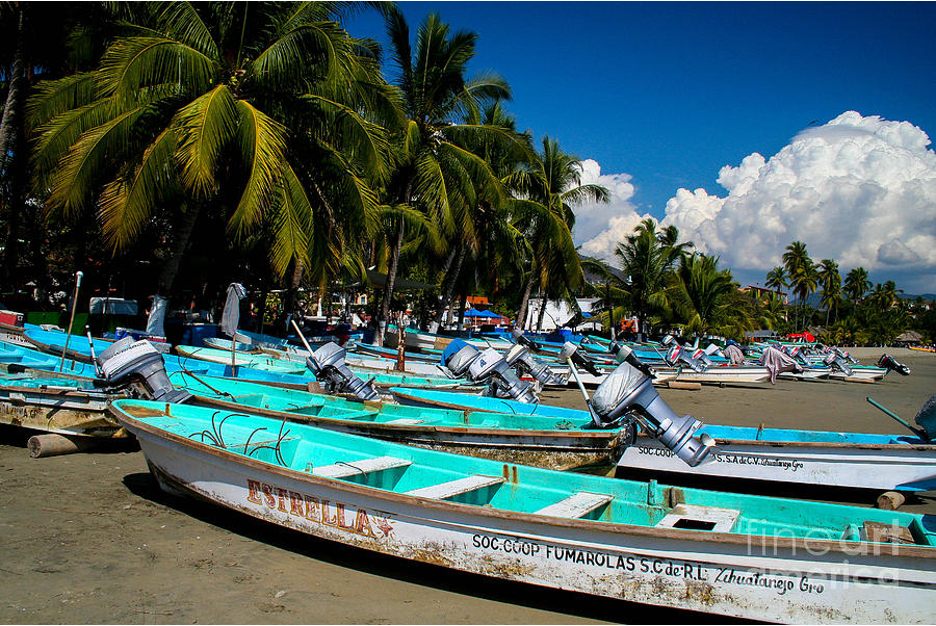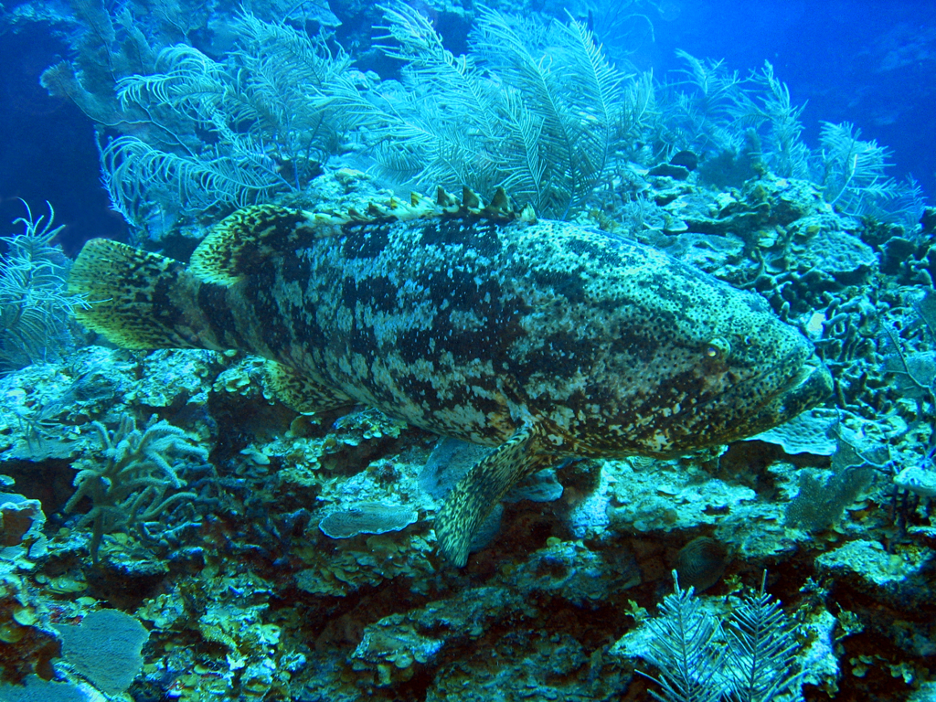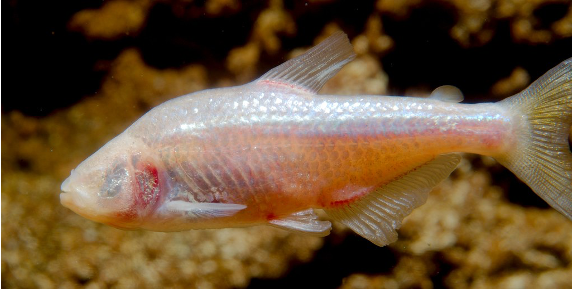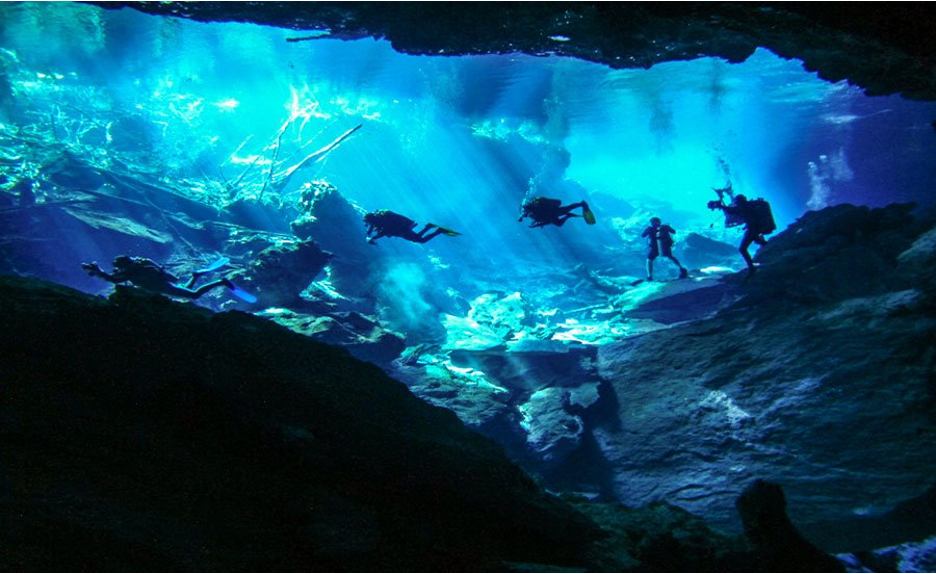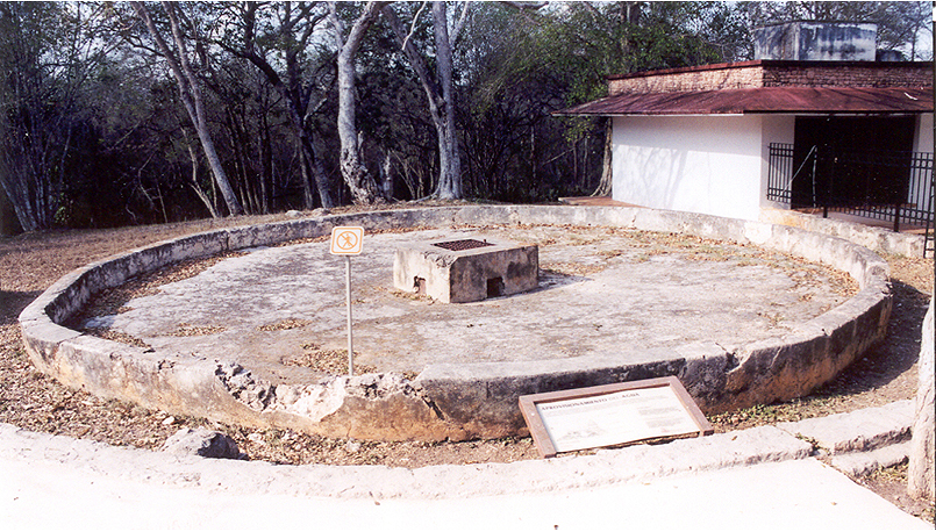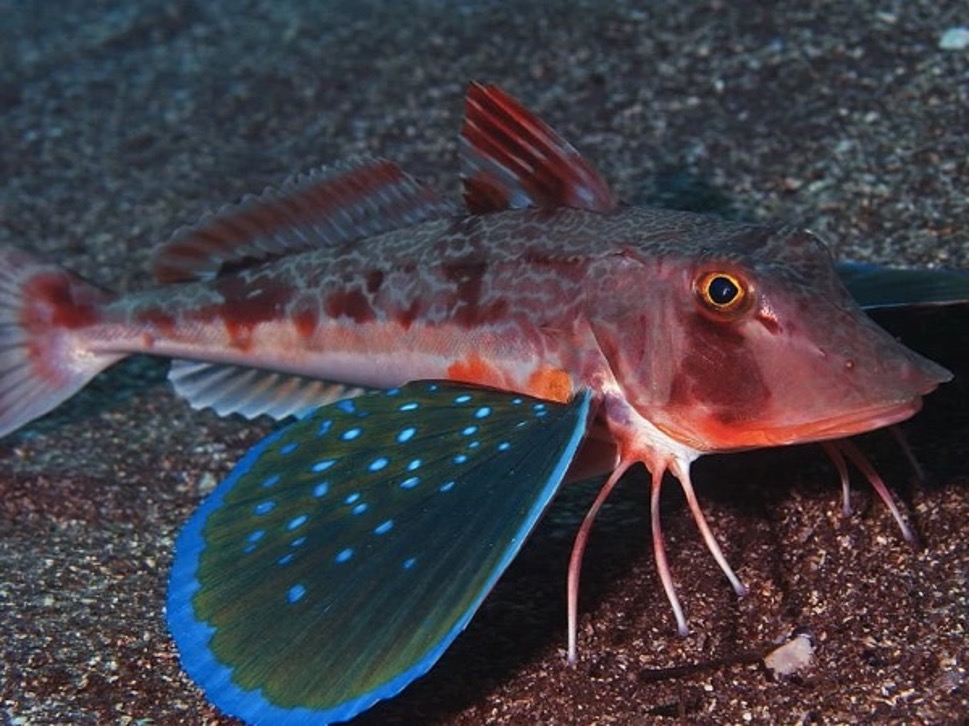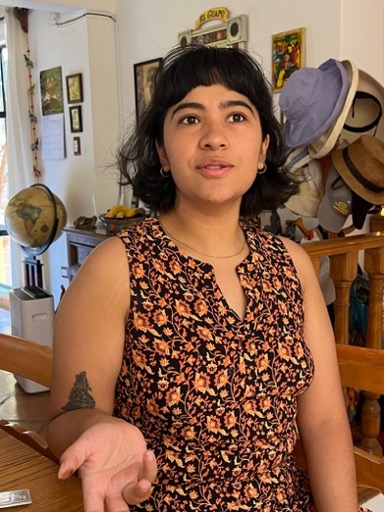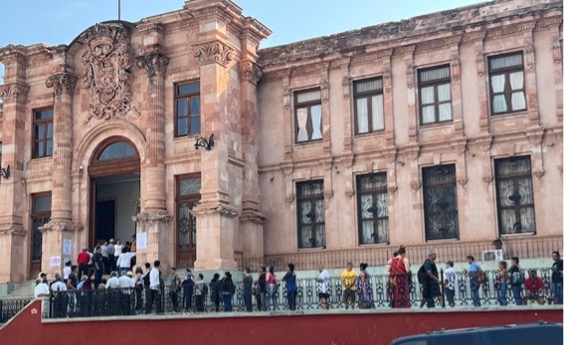|
|
The weekly newsletter of the Mexico Solidarity Project |
|
Every issue archived online at mexicosolidarityproject.org |
|
June 26, 2024 |
|
|
|
Two Species Out of Balance: Human and Fish |
|
Meizhu Lui, for the editorial team |
|
|
“Give a man a fish, and he’ll eat for a day. Teach a man to fish — and he’ll sit in a boat and drink beer all day.” I gave that T-shirt to a friend who fit the latter description perfectly!
Time was when people fished so that their village could eat for the day, a time in history when people played their own role in the ecology of their local environment without necessarily dominating other forms of life.
Today, the relationship between man and nature is more antagonistic than symbiotic. As we learn from Juan J. Schmitter-Soto, even in places like the Yucatán, where only small local vessels still ply their historic trade, overfishing has sadly reduced the abundant wealth of the sea. This is due to the voracious appetite for local catch from the rapidly growing human population in coastal areas, including hordes of tourists coming to resorts in Cancún, Tulum and more.
Human activity far from waterways has also been catastrophic for the fish. In the thousands of years of their existence, fish never dreamed that their diets would include deadly microplastics or that car emissions would warm the waters and destroy the microorganisms essential to their survival.
It’s hard not to cheer the orcas that have taken to ramming boats, rightfully angry at the heedless land-based creatures who have invaded their world. Thankfully, we have humans who love fish, and not just to catch them, eat them, or sell them. They are studying how we might once again achieve balance between us and our kinfolk under the sea. |
|
For a deeper dive into current news and analysis in English, check out our media website. And definitely see the new English podcast ¡Soberanía! (Sovereignty) with José Luis Granados Ceja and Kurt Hackbarth. They entertain, while dismantling the lies and distortions about Mexico fed to us by the mainstream media. |
|
Don’t miss an issue! Sign up for a free Mexico Solidarity Bulletin subscription. |
|
|
Protecting Fish of the Mexican Caribbean |
|
Mexican ichthyologist (fish zoologist) Juan J. Schmitter-Soto has studied the diversification and classification of fish, mostly in northern Central America and the western Caribbean, for nearly 40 years. He coordinates the department of Systematics and Aquatic Ecology at the ECOSUR Research Center in Chetumal, Mexico, focusing on ecology and conservation. |
|
|
You’ve focused your research on the Caribbean Sea. What’s the diversity of marine life there?
I’ve been fortunate to spend a lot of my life underwater on the East Coast of the Yucatán Peninsula in the beautiful Caribbean Sea. I used to dive up to 100 feet deep, but in my current project, we’re only going down about 45 feet. And not far from shore. The coral reef crest occurs about half a mile from the beach, and our team dives in the fore-reef area.
The Mexican Caribbean is home to about 600 or 700 species of fishes; the whole Caribbean Sea is home to maybe ten times that.
Over recent decades, have you witnessed a decline in biodiversity?
Not so much a loss in terms of extinctions, but a loss of abundance, in frequency of rare species, of body size and of carnivorous creatures at the top of the food chain. |
|
|
Goliath grouper Photo: Humberto Bahena. |
|
Take the Nassau grouper. We used to have thousands. They mated in specific areas, and during the mating season, it was an orgy — a wall of fish from the sea floor to the surface! But overfishing — not by industrial fishing but small fishermen — has decimated them. Those reproduction areas are empty. The Goliath grouper — which can grow up to 8 feet long and 800 pounds — is even rarer, I’ve seen only two or three in 30 years of diving. |
|
Fishing isn’t allowed in particular areas and seasons, but the rules are ignored. Unfortunately, our enforcement tools are poor — park rangers are underfunded, understaffed, and underequipped. Because they have no authority to arrest, the laws are toothless. It’s an example of how AMLO’s austerity has undercut good policies.
Climate change is also a problem. Warming kills the coral because the symbiotic algae leave the coral polyps. That weakens them, and they eventually die. The dead coral tends to erode with storms, and the reefs flatten out and degrade over time. The small plants and animals at the bottom of the food chain become scarce, and that contributes to the diminishing populations of larger creatures at the top of the food chain.
Critics of the Mayan Train have said it’s a threat to the region’s biodiversity. As a scientist living and working near the construction, do you also oppose the project? |
|
I do not oppose it. In fact, compared to cars and highways, the electric train can be beneficial — less pollution and roadkill. Inland lakes and waterways contain about 150 species, and some are endemic, meaning they are unique to that area. About a dozen are endangered species, including the two blind cavefishes. None are threatened by the train itself. |
|
|
Mexican Blind Cave Fish |
|
|
Cave divers in a cenote near Tulum |
|
Some divers oppose the Train. They like to dive in the caves found in cenotes — deep sinkholes that have become tourist attractions in the Yucatán — and allege that these could be damaged. In fact, they are a bigger threat because predatory fish from the open area of the cenotes follow them into the dark tunnels and prey on the endemics. |
|
It’s been said that AMLO has a poor record on the environment. What do you think of his performance?
It’s said that AMLO favors oil because he built a new oil refinery. Well, we need oil for an energy transition. AMLO built a refinery — but also the largest solar plants in Latin America. He’s also increased the number of areas protected from development projects.
A new science law got passed calling for ethnobotanical gardens in every state. It emphasizes that traditional knowledge has a place in science, or rather, sciences in plural, because it speaks about a "dialog between knowledges" (diálogo de saberes) and about the human right to science — science for the people.
This is important because “environment” is often defined as nature minus people. But this law recognizes that people who have traditionally lived in harmony with nature should be listened to.
Water shortages have been in the news. Does the new science law help solve that problem? |
|
Water is scarce in the Yucatán and always has been. Much of the soil is limestone, and water dissolves it and passes through it. The Mayans built chultuns, artificial underground reservoirs made waterproof with sascab, a paste made out of the limestone itself. |
|
|
An ancient Mayan chultun at the Uxmal ruins, Yucatán |
|
More "modern" devices to capture rainwater include the curvatos, perhaps used for over a century. These wooden and, more recently, cement tanks receive rainwater from the roof via pipes and conduits. I have one at home, we use curvato water for the garden.
What has amazed you about marine life?
Until recently, I didn’t pay enough attention to fish cleaning stations, these places on the coral reef where large fish go to get groomed by a small fish or shrimp. The small cleaners eat the parasites on the big fish — which allows them to swim right inside their mouths and gills! We also found that, contrary to intuition, this amazing interaction occurs more often in impacted reefs than in the more protected areas, perhaps because of a bigger parasite load. |
|
|
Sea Robin |
|
My favorite sea creature is the sea robin. It has an armored head and “fingers,” which are free and mobile rays on the pectoral fins. These rays have taste buds, used to search for food in the bottom sand or mud. The fins can spread out like wings. Their purpose is not to glide like flying fish, but to put on a colorful display that distracts predators or attracts mates. |
|
Most of what goes on under the sea is still unexplored — it has so much more to teach us and to amaze us — if we protect it now. |
|
|
|
|
A Poll Worker Speaks Out About the INE |
|
Notwithstanding Morena’s overwhelming victories on June 2 for president, Congress, Senate and five state governorships, serious problems occurred at many polling stations. In Guanajuato, the capital of Guanajuato state, 25-year-old Bernice Juárez represented Morena as a poll worker inside the old Escuela Normal, a teachers college. From before 7 am when the polls were scheduled to open until after 3 am the next morning, she observed the voting. This is her account of what she saw. |
|
|
Photo by Bruce Hobson: Bernice Juarez |
|
|
Photo by Bruce Hobson: Voting lines on June 2 at the Escuela Normal polling station |
|
Mexico’s June 2 election leaves us with two great lessons. On the one hand, we have the political awakening of an entire nation, as shown by the voters. On the other hand, we are faced with a major problem: the National Electoral Institute (INE) did not fully guarantee the right to vote.
Its failure demonstrates its great disrespect for the people. Because the INE only allowed us approximately 10 hours to vote, many citizens were unable to do so. In the capital city of Guanajuato, where I worked at a polling station, people began queuing at 7 am, but my polling station didn’t open until 8:45. Voting day in Mexico is always on Sunday, but many people still work on that day. The INE effectively denied them the opportunity to vote.
The INE’s lack of organization also delayed the voting — long lines of people waited many hours, including the elderly and people with disabilities. Again, this made it impossible for many to vote before the polls closed at 6 pm. If you came to vote one minute after six, you were shut out of voting.
Finally, the INE’s representatives were far from impartial. While party representatives remained attentive and quiet for nearly 20 hours during vote counting, INE representatives openly expressed their own political ideas and gave out false information. Not surprisingly, that created distrust in the INE, and trust is essential for an electoral institute.
This was the first time that I participated as a poll representative for Morena. Despite the INE’s failures and the exhaustion of all of us poll workers, we were happy to take part to guarantee the right to freely elect our president and governors, whatever our preferences. |
|
|
|
|
Recent news reports and commentaries, from progressive and mainstream media, |
|
José Luis Granados Ceja, Claudia Sheinbaum’s Election in Mexico Shows How the Left Can Win The Nation. Mexico Solidarity Media editor Granados Ceja writes that Sheinbaum’s landslide victory is thanks to her commitment to continue policies that put the interests of the working class first.
Étienne von Bertrab, La Sedatu de la 4T Pie de Página. Existen más razones por las que el pueblo mexicano refrendó el proyecto obradorista que las que cuentan los medios y la comentocracia. Muchas tienen que ver con lo que la gente ve y vive en sus comunidades y territorios. La labor de la Secretaría de Desarrollo Agrario, Territorial y Urbano (SEDATU), una secretaría que finalmente encontró una vocación, forma parte de ese abanico de motivos
Edwin F. Ackerman, Transforming Mexico Sidecar. The AMLO administration describes its role as enacting a Cuarta Transformación. Like the declaration of independence in 1810, the liberal state reforms of the 1850s and the Mexican Revolution of the early twentieth century, the victory of 2018 was meant to mark not just a change in government but a change in regime.
Presidente mexicano reconoce autonomía de su país ante el FMI y el Banco Mundial Telesur. AMLO precisó este martes que la Cuarta Transformación ha demostrado que se pueden poner en marcha políticas económicas autónomas sin regirse por estructuras mundiales como el FMI y del Banco Mundial.
Sergio Rodríguez Gelfenstein, Mexico: From the Mayans and the Aztecs to Claudia Sheinbaum Resumen Latinoamericano English. In the third debate between the presidential candidates, held on May 19, Claudia Sheinbaum, quoting Mario Benedetti, recalled that “the south also exists.” In that sense, she stated that, “… we are going to continue expanding relations with Latin America and the Caribbean and strengthening CELAC.”
Eder Suárez, Agua, aduanas y recuperación del ISSSTE: temas centrales en gira por el norte de Sheinbaum y AMLO De Raíz. Anunciada tras el triunfo de Sheinbaum en las urnas, este fin de semana inició una gira conjunta entre el actual presidente López Obrador y la próxima mandataria por todo el país. Durante estas giras, se supervisan las obras próximas, al tiempo que la candidata electa agradece el voto de confianza y refrenda promesas de campaña.
Trade Unions for Energy Democracy, New President in Mexico to Accelerate the Energy Transition Socialist Project. TUED unions in Mexico’s energy sector had supported AMLO’s efforts to reconstitute energy sovereignty by reversing the neoliberal reforms. They actively supported Scheinbaum’s candidacy and have been part of the international effort led by unions in the Global South to promote the “public pathway” approach to energy transition.
Angélica Ferrer, No solo es la reforma al Poder Judicial: estas son las iniciativas que impulsará Sheinbaum Sputnik. La virtual presidenta electa de México, Claudia Sheinbaum, presentó recientemente un paquete de reformas que planea impulsar en su mandato, especialmente al inicio de su gobierno. [English version, Orinoco Tribune]
Sarah Morland, Mexico's Sheinbaum says polls show support for judicial reform Reuters. According to three polls commissioned by MORENA, which won a landslide victory in the June 2 general elections, around 80% of people believe it is necessary to reform the judicial system.
Pablo Meléndez, Vamos a implementar las Utopías verdes y a seguir transformando esta ciudad: Brugada, Sentido Común. Desde el Parque Ecológico de Xochimilco, Clara Brugada se comprometió a seguir rescatando los distintos espacios públicos de la capital, así como impulsar Utopías verdes. |
|
|
|
|
The Mexico Solidarity Project brings together activists from various socialist and left organizations and individuals committed to worker and global justice. We see the 2018 election of Andrés Manuel López Obrador as president of Mexico as a watershed moment. AMLO and his progressive Morena party aim to end generations of corruption, impoverishment, and subservience to US interests. Our Project supports not just Morena, but all Mexicans struggling for basic rights, and opposes US efforts to undermine organizing and Mexico’s national sovereignty.
Editorial committee: Meizhu Lui, Bruce Hobson, Agatha Hinman, Victoria Hamlin, Courtney Childs, Susan Weiss. To give feedback or get involved yourself, please email us! |
|
Subscribe! Get the Mexico Solidarity Bulletin in your email box every week. |
|
Web page and application support for the Mexico Solidarity Project from NOVA Web Development, a democratically run, worker-owned and operated cooperative focused on developing free software tools for progressive organizations. |

